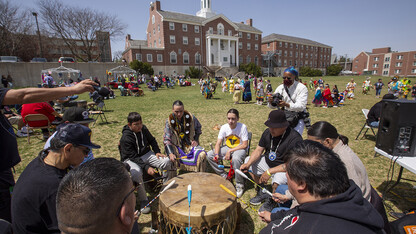· 3 min read
Whitbeck’s new book examines Native youth development

UNL sociologist Les Whitbeck is co-author of a new book designed to inform Native tribes and mental health service providers of the historical framework surrounding Native adolescents’ mental health and substance abuse issues.
The book, “Indigenous Adolescent Development: Psychological, Social and Historical Contexts,” is based on a longitudinal study that Whitbeck began in 2001. The research followed 746 children in four Native tribes and four Canadian First Nations from early adolescence into early adulthood.
The new publication, written in collaboration with tribal elders, addresses development and serious mental health and substance abuse issues.
The book explains an adolescent development model that the authors developed. A developmental model is a framework used as a guide in making diagnoses, understanding a process and forming a prognosis for continued development. The model addresses the violence and historical losses tribes suffered during the European settling of the United States – losses that still affect indigenous communities, families and children.
“You can’t understand American Indians or Canadian indigenous people without some appreciation of the effects of ethnic cleansing and how that permeates every single aspect of their social life, from where they live to their communities to their families to the kinds of prejudices they experience,” Whitbeck said.
“(In the book) we’re able to show the developmental effects and psychological effects of ethnic cleansing and historical loss,” he said. “It makes a difference. It affects these kids. It affects their families.”
The historical losses and the cultural contexts play such a large role that an adolescent development model specific to Native peoples must be developed, Whitbeck said.
“If you apply a non-indigenous developmental approach, you’re going to miss so much,” he said. “As we wrote the book, it became more and more apparent that these kids were growing up in a developmental context that was so different from the majority of developmental contexts that they warranted a separate model.”
Whitbeck co-authored the book with Kelley Sittner Hartshorn of Oklahoma State University and Melissa Walls of the University of Minnesota.
The book also could lead to funding for substance abuse prevention programs within Native communities in the United States, he said. Many of the programs, which are family-centered and address the effects of historical loss, are in use in Canada.
“Based on the findings, we now have under review a culturally based, family-centered prevention model for the substance use,” Whitbeck said. “The prevention program is extremely popular because it brings communities together and connects generations.”








